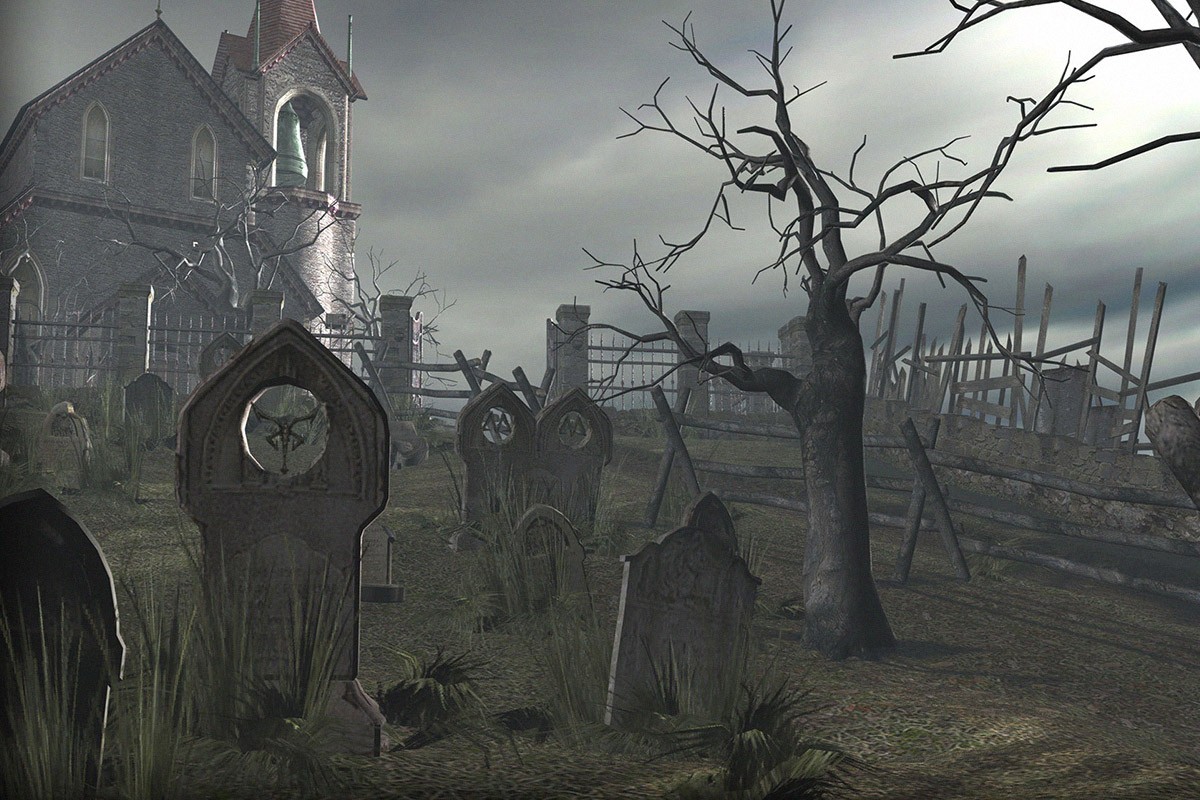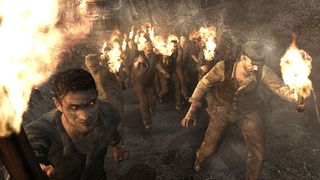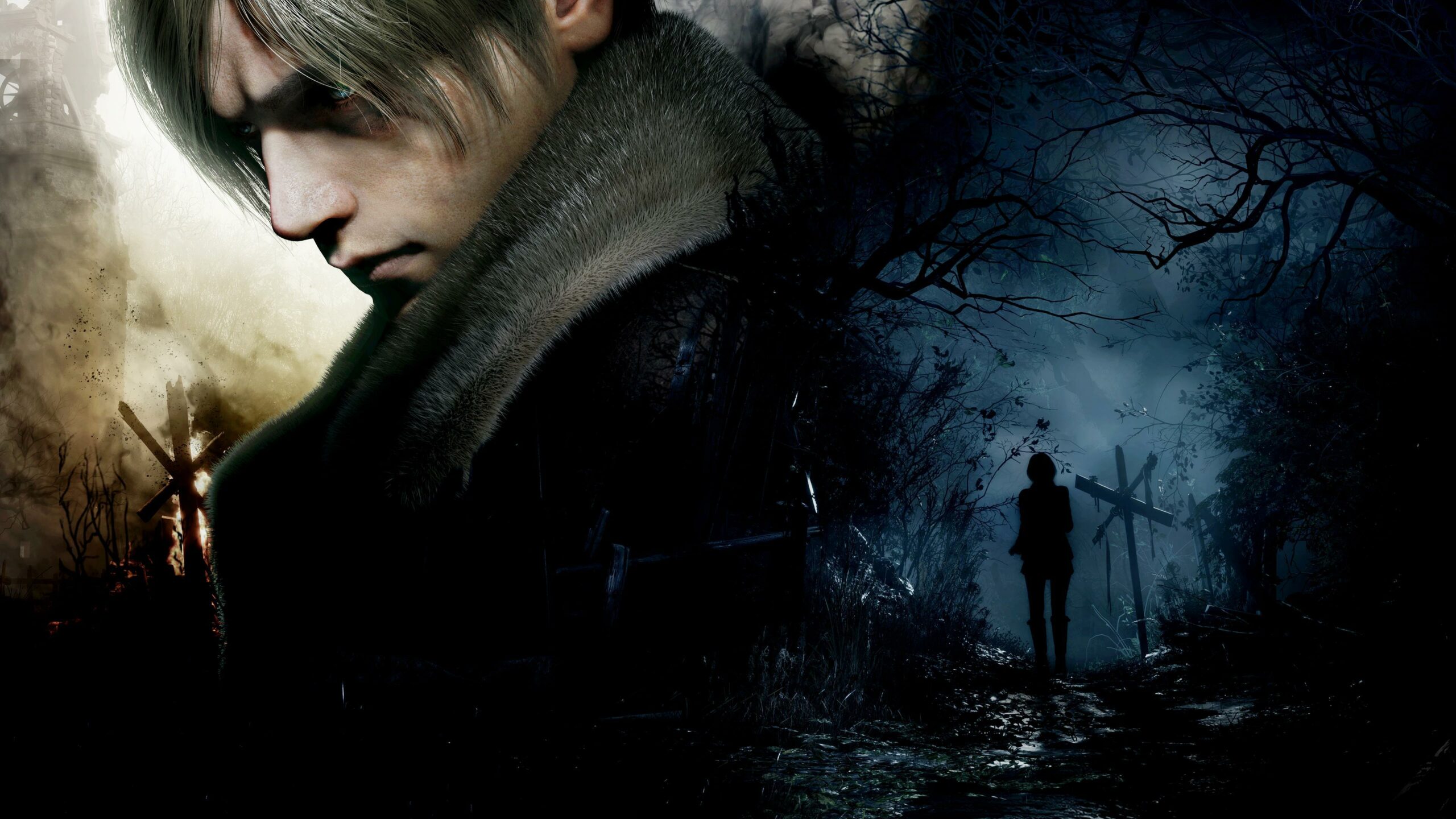You can trust VideoGamer. Our team of gaming experts spend hours testing and reviewing the latest games, to ensure you're reading the most comprehensive guide possible. Rest assured, all imagery and advice is unique and original. Check out how we test and review games here
Resident Evil 4 is set in Spain and begins in broad daylight. If you told that to a fan of the series in 2002, the year the previous main entry, Resident Evil 0, was released, you would be met with either anger, laughter, bewilderment, or near-despair. Such reactions would be understandable; the series belongs to Raccoon City, after all, its horrors hemmed in by a dark sea of trees. The only sunlight on offer was in the hesitant, hopeful rays that usually accompanied the ending cutscenes. For someone who had just played Resident Evil 0, especially, with the hurtling gloom of its early train setting, it would be entirely reasonable to fear that fear would wither under the sun.
But one look at the first few minutes of Resident Evil 4 and their faith would be restored. For a start, the light on offer isn’t the sort to make those of fair and freckled complexion reach for a bottle of sun cream. The sky is grey-white and stale, like an old tablecloth, and—despite the flamenco music that flares up on the soundtrack—it doesn’t loom above a recognisably Spanish patch of earth. It’s cold and fogbound. The roads, the forest, and the village are all doomy and dung-hued. Even the blood looks brown. Replaying the game over the weekend—to mark its 15-year anniversary, on Saturday—I realised that the reason it has smeared itself on my memory is down to a mythic, fairytale quality. The whole thing isn’t grim so much as Grimm; you half expect to spot a plume of smoke above the woods, gesturing you in toward a gingerbread house.
The plot sees Leon S. Kennedy, the hero of Resident Evil 2, dispatched to this damp European parish to rescue the president’s daughter, Ashley Graham. The first words we hear are his: “1998…” he says with a sigh, as though he were recounting his testimony for the hundredth time. “I’ll never forget it.” Neither will we. It served as the setting for the original Resident Evil (“the year when those grisly murders occurred in the Arklay Mountains”), and the words, tinged with tiredness, could almost belong to that game’s director, Shinji Mikami—whose career crystallised upon its release, in 1996. Mikami wrote and directed Resident Evil 4, and, if you sense the restive spirit of someone who is bored by the past, someone with a flammable relationship to the rulebook, it’s for good reason. Hence the slew of departures from series tradition: the over-the-shoulder aiming; the camera, craned slightly above its star and tilting down; the clammy focus on combat, scrapping long-term tension for blind panic. And, yes, the daylight—and with it the suggestion that nightmares can be woken into.
I played the HD version of Resident Evil 4, on the Xbox One, and was stung by a swarm of small betrayals. Replaying a game that has ossified in the memory into a sort of saintly relic is a perilous undertaking, and I found myself ill-prepared for the preposterous. First, that anyone would mount a mission in the name of national security sporting a haircut like Leon’s: a floppy, half-drawn set of curtains, implying the Secret Service had recruited from the boy band circuit. And second, the script, which demanded its actors lurch out lines like, “Great. A chainsaw,” and “Where’s everyone going? Bingo?” Playing all those years ago, I must have grown happily attuned to such duds, the way one’s nose blocks out a bad smell. I even remember attributing a tingly foreboding to the line “He’s not a zombie…” after a run-in with an axe-wielding local, whereas now I couldn’t help wondering how modest Leon’s mental aptitude score must have been back at the academy.
Mind you, my own mental aptitude was being put thoroughly through its paces. My familiarity with the opening hours was shaken up by things I had never seen; the game, like one of the series’ bioweapons, seemed to have mutated new strains in order to disorient me. After Leon is chauffeured to the village by a pair of local police chaperones, he hears an explosion—bang goes the bridge, and the car, he came in on. For the first time, I went back—resisting the breadcrumb pull of the village that must always have lured me in—to investigate the commotion. I was treated to a cutscene I had never seen, in which Leon peers over the chasm to survey the fiery wreckage below. Then, moments later, while battling the rural mob and waiting for the church bell to toll, another one: Leon barricades himself into a house, shoring up his defences by shoving a chest of drawers in front of the door. It subtly primes you for a later siege and introduces the sack-headed freak, who totes a baying chainsaw, earlier than I was used to.
By far the biggest shock, however—and the most refreshing—was the controls. I was under the impression, all this while, that the series had scrapped its infamous tank control scheme for Resident Evil 4, yet here was Leon, ploughing forwards as if on iron treads, turning in arcs as wide as houses, while the right analogue stick merely flicked the camera side to side, through 180 degrees, like a nervous gunner. As the years, and the sequels, assaulted the stiff chassis of these games, the controls grew looser and more lubricated, and I had presumed that Resident Evil 4 would feel terribly modern: a game out of time. It’s a curious, humbling thing, then, to go back to where that change began and be struck by just how short a distance Mikami had dragged us from the rusted mechanics of the previous games.
It was a pleasant surprise, supplying no small measure of suspense while staying true to the tradition of the series: that, although well-stocked with ghouls, it is you that goes bump in the night (or in this case the day), usually against an outcrop of table or crate. Elsewhere, I was taken aback by the look of the thing. Revisiting old graphics is often a sure-fire way to shame the past and the attendant creaks and moans of old hardware. In the HD version, the visuals have been rinsed of their grime and buffed to a thin, sharp finish; ordinarily, I would demand my grime back, it being a vital component of pulp texture, but not so in Resident Evil 4. The HD disinfectant puts the backdrops under cornea-scratching scrutiny, and they have the look of rained-on cardboard. I spotted the village looming beyond a loading-screen gate, and it had the cheap, charming look of an old Hammer Horror film set.
What better place for the game’s villain, Lord Saddler, to swagger into? He is cloaked and camp, and, while not technically a count, he does have a castle. Granted, he lacks the orotund tones of Christopher Lee, but he makes up for it by saying things like, “I will help you awaken from your world of clichés,” (he doesn’t, far from it) and, “My name is Osmund Saddler, the master of this fine… religious community” (evoking shades of Lord Summerisle, who presided over a pagan village in The Wicker Man). The second and third acts of Resident Evil 4—comprising the castle and the island-bound military base—are so winkingly self-aware that they slip the charge of crumminess. I spent most of Sunday in such delirious thrall to the world of clichés that Mikami had whipped up that I came away with the impression of a game far smarter on the page than I had previously thought.
Perhaps dealing in such crusty classics as the mine-cart chase, the wall of lasers (cribbed from the first Resident Evil movie), and the climactic countdown to self-destruct is the only way to ground a game so otherwise glitteringly new. Some of its most forward-thinking flourishes feel casually inserted. One such moment arrives in the first chapter: while rooting around in a rancid basement, a context-sensitive button prompt appears, allowing Leon to duck behind a waist-high wall. There, in that fleeting moment (it’s repeated once more, later in the game), carried out in clunky fashion, is the next 15 years of shooter design, seemingly happened upon by mistake. With Resident Evil 4, Mikami may have taken us a shorter way from the old Resident Evil games than I had always presumed, but he took us only a short way from where we are now. 2005… I’ll never forget it.
Resident Evil 4
- Platform(s): GameCube, PC, PlayStation 2, PlayStation 3, PlayStation 4, PlayStation 5, Wii, Xbox 360, Xbox One, Xbox Series S/X
- Genre(s): Action, Adventure, Survival Horror






